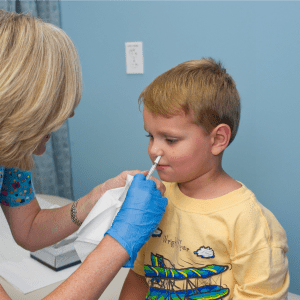Welsh LMCs to question pharmacy flu contracts at annual conference

Welsh GP leaders will debate the pharmacy flu scheme at its annual meeting of LMC representatives next week.
At the meeting, to be held in Chester next Saturday, GPs will discuss a motion calling for the pharmacy contract for influenza to be ’subject to post-payment verification checks on the categories of patients claimed for’.
LMCs are also proposing the Welsh GPC prepares ’a transparent report on the cost effectiveness of the pharmacy flu vaccination service’. The motion suggests that ’if this does not demonstrate achievement of the original intended goals, insists the money provided is used on more evidence based cost effective primary care measures’.
Other issues up for debate at the conference on includ:
- scrapping QOF, which the motion suggests ‘is a misnomer’ which ‘should be consigned to history’;
- a call for general practice to be classed as a UK shortage occupation to make it easer to recruit from overseas;
- for the GPC and Welsh Government to agree a defined ‘managable workload’ for GP practices to stop pressures mounting;
- how some health boards are trying to reclassify enhanced service work as core GMS work and requiring practices to do this unpaid;
- the introduction of a single performers list for Wales so that GPs do not have to reapply if they move to a different region.
GP leaders in England have also questioned schemes to hand flu vaccination responsibilities to pharmacies, with some warning patients were discouraged from having the jab.
The motion in full
That this conference calls on GPC Wales to ensure the community pharmacy contract for influenza
i. Is subject to post payment verification checks on the categories of patients claimed for
ii. Provides a transparent report on the cost effectiveness of the pharmacy flu vaccination service; and
iii. If this does not demonstrate achievement of the original intended goals, insists the money provided is used on more evidence based cost effective primary care measures.
Visit Pulse Reference for details on 140 symptoms, including easily searchable symptoms and categories, offering you a free platform to check symptoms and receive potential diagnoses during consultations.









